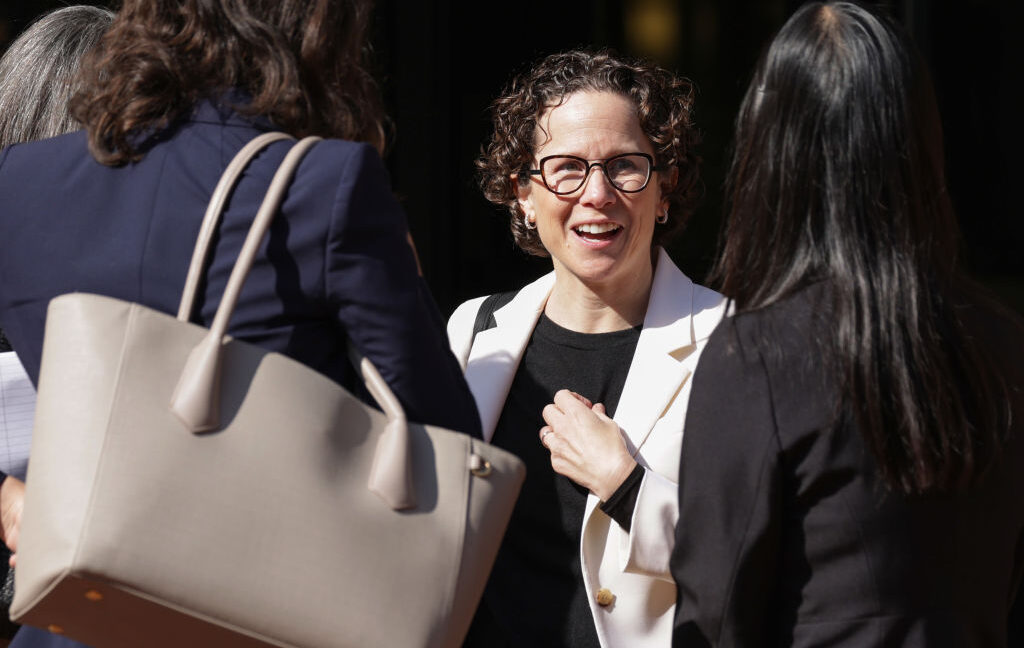
DOJ wraps up ad tech trial: Google is three times a monopolist
arstechnica.com
Will the DOJ go two for two? DOJ wraps up ad tech trial: Google is three times a monopolist Google argued DOJ proved the "exact opposite" of existence of ad tech monopoly. Ashley Belanger Nov 25, 2024 4:00 pm | 34 Attorney Karen Dunn of Googles defense team leaves the Albert V. Bryan United States Courthouse on September 9, 2024 in Alexandria, Virginia. Credit: Alex Wong / Staff | Getty Images News Attorney Karen Dunn of Googles defense team leaves the Albert V. Bryan United States Courthouse on September 9, 2024 in Alexandria, Virginia. Credit: Alex Wong / Staff | Getty Images News Story textSizeSmallStandardLargeWidth *StandardWideLinksStandardOrange* Subscribers only Learn moreOne of the fastest monopoly trials on record wound down Monday, as US District Court Judge Leonie Brinkema heard closing arguments on Google's alleged monopoly in a case over the company's ad tech.Department of Justice lawyer Aaron Teitelbaum kicked things off by telling Brinkema that Google "rigged" ad auctions, allegedly controlling "multiple parts" of services used to place ads all over the Internet, unfairly advantaging itself in three markets, The New York Times reported."Google is once, twice, three times a monopolist," Teitelbaum said, while reinforcing that "these are the markets that make the free and open Internet possible."Teitelbaum likened Google to a "predator," preying on publishers that allegedly had no viable other options for ad revenue but to stick with Google's products. An executive for News Corp. testified that the news organization felt it was being held "hostage" because it risked losing $9 million in 2017 if it walked away from Google's advertising platform.Brinkema, who wasted no time and frequently urged lawyers to avoid repeating themselves or dragging out litigation with unnecessary testimony throughout the trial, reportedly pushed back.In one instance she asked, "What would happen if a company had produced the best product," but Teitelbaum rejected the idea that Google's ad tech platform had competed on the merits."The problem is Google hasnt done that," Teitelbaum said, alleging that instead better emerging products "died out," unable to compete on the merits.According to Vidushi Dyall, the director of legal analysis for the Chamber of Progress (a trade group representing Google), this lack of advertiser testimony or evidence of better products could be key flaws in the DOJ's argument. When Brinkema asked what better products Google had stamped out, the DOJ came up blank, Dyall posted in a thread on X (formerly Twitter).Further, Dyall wrote, Brinkema "noted that the DOJs case was notably absent of direct testimony from advertisers." The judge apparently criticized the DOJ for focusing too much on how publishers were harmed while providing "no direct evidence about advertisers and how satisfied/dissatisfied they are with the system," Dyall wrote."Arent advertisers themselves the customers?" Brinkema reportedly asked. "Dont you think it would be valuable to hear from them?"Googles lead lawyer, Karen Dunn, told Brinkema that the DOJ seemingly presented "the exact opposite" of the proof needed to establish Google's alleged monopoly, the NYT reported.Ruling expected in coming monthsBrinkema is expected to rule in the ad-tech trial in the coming months. Some analysts predict that the DOJ's success in proving Google's monopoly in search will not influence her decision, but she has confirmed that she would consider the DOJ's request to break up Google's ad business.That means Google could be facing a second major threat to its overall revenue after the DOJ recently pushed to force the sale of Chrome to fix Google's search monopoly. According to The New York Times, the "ad-tech division generated $31 billion last year for Alphabet, Googles parent company, or 10 percent of its sales." So while it's not search empire money, it's still a good chunk of Google's business.The DOJ wants Brinkema to order Google to sell off Google Ad Manager, the opaque ad exchange that the DOJ alleged has such little transparency that it allows Google to charge monopoly prices for ads.Brinkema has said that she expected to use the DOJ's closing arguments today to answer her remaining questions. Experts following the trial repeatedly noted that the 80-year-old judge quickly grasped the technical concepts involved, despite the case being exceptionally laden with industry jargon.Which way the judge is leaning remains unclear. But while Dyall praised Brinkema's seeming skepticism during the DOJ's closing argumentswhich reportedly ended by calling Google an "authoritarian intermediary" in the ad industryBrinkema proved just as reserved when parsing Google's defense during the trial. In one notable example, when one witness tried to suck up time on the stand describing how Google helps the federal government, Brinkema incited laughter by abruptly shutting it down, the NYT reported."This is sounding more like PR than getting to the issues in this case," Brinkema reportedly said.Ashley BelangerSenior Policy ReporterAshley BelangerSenior Policy Reporter Ashley is a senior policy reporter for Ars Technica, dedicated to tracking social impacts of emerging policies and new technologies. She is a Chicago-based journalist with 20 years of experience. 34 Comments
0 Comments
·0 Shares
·114 Views


